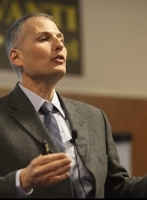
NOTE: Members need to sign-in to see the 100% discounted price. The link to the live remote training will be sent by Noon on the day of the training to everyone who registers.
What do an Uber driver, a scrum master, a freelance writer and a contract project manager / product owner have in common? The answer is that they are potentially a part of the gig economy.
One of the fastest growing trends in employment is a move away from full-time contracts. Instead, both employers and workers are pursuing alternative arrangements, including temporary or project-based contracts.
It wasn't that long ago that people graduating from college or university would go searching for a permanent position with regular pay periods, consistent hours and employee benefits. However, the proportion of such jobs is shrinking.
The emergence of new digital technologies has meant a shift in companies employment strategies. They are looking to reduce their costs by hiring less full-time staff in favor of short-term support based on immediate needs.
On the flip side, peoples' preferences regarding job structures are also changing. Workers have realized that contracting out their services to a mix of companies allows them flexibility in determining the amount of time they spend working and the types of work they do.
Where the two sides meet is where we find the gig economy.
Those participating in the gig economy call themselves freelancers, independent professionals, contract workers and independent contractors. It's easy to think of this group as a bunch of millennials looking to escape the traditional 9 to 5, but among those participating in the gig economy are experienced nurses, project managers, scrum masters, agile coaches, engineers and marketing consultants.
Talk learning objectives - be BOLDER - based on Michael :
* What are the fundamental pre-requisites for branding yourself for
gig economy employment?
* What does it take to thrive in the Covid19 gig economy?
* How can you prepare for gig economy employment?
Participants receive a FREE Bolder assessment with Michael here:
Check out Michael's YouTube: How to Survive Your First Day of Remote Work
Bolder Technique:
* Believe - fast failure wins, change the narrative
* Open your eyes - core competencies, NLP, SI
* Let's move ahead - plan and budget
* Dance to the music - use Agile Kanban to flow
* Retrospect - cadence is king



